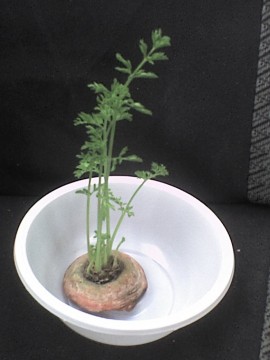 Editor’s Note: Publico (www.publico.pt) is considered the most influential daily newspaper in Portugal. Last week, its Foreign Desk senior reporter, Margarida Santos Lopes, interviewed Mr. Iraj Kamalabadi, the brother of imprisoned Fariba Kamalabadi, regarding the situation of the incarcerated Yaran and her report was published last Saturday: Publico. The front page of the newspaper also had a reference to this article. The article describes the situation of the Yaran in vivid terms and a translation was provided to Iran Press Watch by Mr. Marco Oliveira. This translation appears in 3 parts, corresponding to the three parts of the article.
Editor’s Note: Publico (www.publico.pt) is considered the most influential daily newspaper in Portugal. Last week, its Foreign Desk senior reporter, Margarida Santos Lopes, interviewed Mr. Iraj Kamalabadi, the brother of imprisoned Fariba Kamalabadi, regarding the situation of the incarcerated Yaran and her report was published last Saturday: Publico. The front page of the newspaper also had a reference to this article. The article describes the situation of the Yaran in vivid terms and a translation was provided to Iran Press Watch by Mr. Marco Oliveira. This translation appears in 3 parts, corresponding to the three parts of the article.
By Margarida Santos Lopes
Iran: Islamic Regime denies citizenship rights to a community of 300 thousand members.
The seven leaders of the largest religious minority in Iran – five men and two women – have been held for more than a year without trial. Some charges carry the punishment of death, but the regime knows that they are innocent.
At 3:30 AM on May 14, 2008, intelligence agents arrived at the home of Fariba Kamalabadi in Tehran. They had a search warrant. It took them three or four hours to search the rooms. They arrested her and confiscated several items, from computers to family photos. Iraj Kamalabadi, one of five brothers, who lives in California, complains: “It was a concerted plan to arrest all the Baha’i leaders. Their houses were raided at the same time.”
Psychologist Fariba, 46, was taken to Evin Prison on the same day that the entrepreneur Jamaluddin Khanjani, 75, industrialist Afif Naemi, 47, the agricultural engineer Saeeid Rezaie, 51, the former social worker Behrouz Tavakkoli, 57, and optometrist Vahid Tizfahm, 37. Professor Mahvash Sabet, 55, has been detained earlier, on March 5, 2008, in Mashhad, where she had been summoned by the Ministry of Intelligence, under the pretext of answering questions about a funeral at the Baha’i cemetery.
After months of isolation, the seven leaders of the largest religious minority in Iran only recently knew the formal charges against them: “spying on behalf of Israel”, “insulting religious sanctities”, “propaganda against the Islamic Republic” and “corruption on earth.” Iraj Kamalabadi, in a phone interview with Publico, does not accept these charges: “They are innocent and have only been arrested for being Baha’is.”
The law provides the death penalty for espionage and “corruption on earth”, but the Center for Human Rights in Iran, whose president, Nobel Peace Prize winner Shirin Ebadi, is part of a team of lawyers, ensures that there is no evidence to condemn them, and recommended that the trial, scheduled after several postponements for October 18, be open to the public.
Iraj hopes that international pressure will save his sister and the other detainees from the fate of the National Spiritual Assemblies of the Baha’is of Iran (advisory boards of nine members, elected by the believers that govern community life, without any clergy) after the 1979 Islamic revolution. On August 21, 1980, the nine members of the first Assembly were kidnapped. “No one ever saw them again, they are probably dead,” said the consultant, who in 1977 went to study in Boston, and could no longer return home.
On December 27, 1981, only one member of the second Assembly survived the firing squad. In 1984, four out of nine members of the third Assembly since the Revolution were executed.
“In the mid-1980s, the government ordered that Baha’i Spiritual Assemblies should be dissolved,” says Iraj. “Because Baha’is are obedient to the laws of the countries where they live, the community dissolved all its institutions at the local and national level. An informal association was then established, with the consent of the authorities, called the Yaran [in Persian, meaning “Friends”], to administer the basic needs of the Baha’i community. “The seven leaders arrested in March and May were the Yaran.”
The blanket on the floor
The persecution is not new to Fariba Kamalabadi, a mother of three children who dreamed of becoming a doctor but who, like all Baha’i youth, during the 30 years since the revolution, could not enter university. “It’s the third time she has been arrested,” said Iraj. “The first was about five years ago; the second was three and a half years ago. Our father also spent some time in prison. They arrested him at home and took him wearing his pajamas. He was severely tortured, and died shortly after being released, due to heart problems aggravated by abuse.”
Iraj believes his sister is not being physically abused, but warns against the deterioration of conditions under which she and six others leaders are living. “In the first months of isolation, they were subjected to harsh interrogation,” he says. “Their cells have no ventilation or natural light. They were given a blanket and a pillow. They fold the blanket; the bottom serves as a mattress and the upper part as a cover. The food is horrible, and the portions have been gradually reduced. The utensils with which food is cooked and served have not been washed. Even the bread is moldy.”
Since the protests against the results of presidential elections in June, says Iraj, the cells “have been overcrowded with new detainees. Many have contracted diseases. Before being arrested, my sister was taking medication for cholesterol and an irregular heartbeat. In prison, they do not allow you to treat yourself. She is seriously ill. When my mother was allowed to visit her, three months ago – the first time – she could not recognize her own daughter – only skin and bone. They all suffer from malnutrition. Their skin shows signs of not being exposed to the sun. Because most of their time is spent sleeping or sitting on the floor, they also have bone problems.”
In the midst of adversity, Fariba experienced a small miracle. “One day, when the 14th birthday of her youngest daughter [Taraneh Taef] was near, not having anything to give her, she noticed that the meal that was served had a rotten carrot,” says Iraj. “She also noted that the base of the carrot had roots growing. She wrapped it in paper moistened with water, and the plant began to grow, even without sunlight. When the family went to visit, she offered the carrot to her daughter as a birthday present. It was a very moving moment.” (See: IranPressWatch)
 Iraj repeats that there is utterly no reason why the seven leaders – the Yaran – should not to be immediately released. The authorities “know that the accusations are false, but they inflict pain due to a deep hostility towards Baha’is.”
Iraj repeats that there is utterly no reason why the seven leaders – the Yaran – should not to be immediately released. The authorities “know that the accusations are false, but they inflict pain due to a deep hostility towards Baha’is.”
Aside from all that, he is encouraged by the changes of mentality that Persian society has shown. “In February, a group of academics, writers, journalists, artists, and Iranian activists published an open letter entitled “We Are Ashamed”. In an unprecedented move, they admitted having ignored, for 150 years, the plight of the Baha’is.
Questioned about her expectations for the coming negotiations between Iran and the Group of 5+1 (U.S., UK, France, Russia, China and Germany), Diane Ala’i, the Representative of the Baha’i International Community at the UN in Geneva, tells Publico that she has only one request: “Put human rights in the agenda, and do not sacrifice it on behalf of other interests.”

September 23, 2009 9:56 pm
This is an excellent article. The pitiful thing is that no article, evin three installments, can mention all the human rights issues, even those not unique to the Baha’is. For example, one of the Friends had his food decreased because he needed a surgical operation but refused to have it in Evin prison, because of the high death rate in their inadequate facility. Yet Baha’is in Iran have never called for international protest of their cases until they lost all protections of the legal system, and at the same time were targeted for destruction by every tool of the legal system.
September 24, 2009 2:36 am
Please convey my deep appreciation to the reporter for her comprehensive and honest coverage of the situation of the Baha’is in Iran. I thank her from the bottom of my heart.
September 24, 2009 10:01 am
Thank you, Mrs. Santos Lopes. If you had not interviewed Mr. Kamalabadi, this little piece of the history of the human spirit might have been lost. Every word is precious.
September 24, 2009 12:14 pm
I agree with Iraj Kamalabadi, there is utterly no reason why the seven leaders who were once called the Yaran and who took the further step of disbanding themselves, should not to be immediately released.
The factions of the Iranian government who insist upon punishment of the Iranian Baha’is community only make themselves appear heartless and irreligious. There is still time to show the world that the government of Iran can and will do the right thing in the name of God, in the name of humanitarian consideration: release Fariba Kamalabadi and the other six Baha’i individuals being held in Evin Prison.
September 28, 2009 12:20 am
My family and I are disturbed with what goes on in Evin Prison as far as Human Rights Violations, specially these 7 innocent individuals who have always been obedient to their government. Why U.N. General Assembly does not condemn these atrocities? Thanks to the couragous reporter who gave the world a glimps of what is going on in Islamic Republic of IRAN.